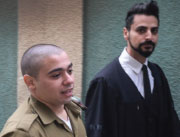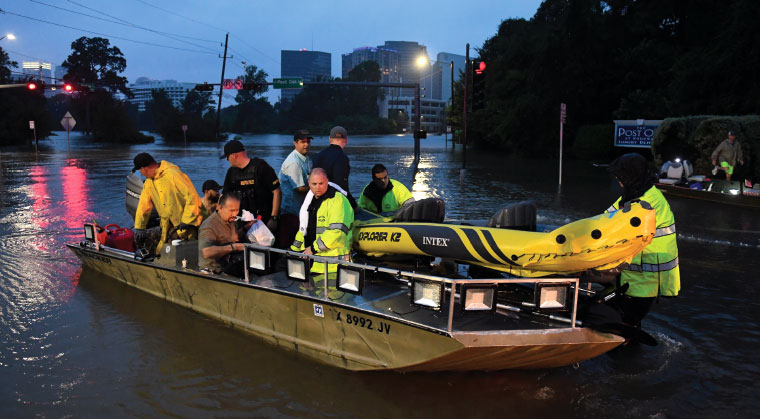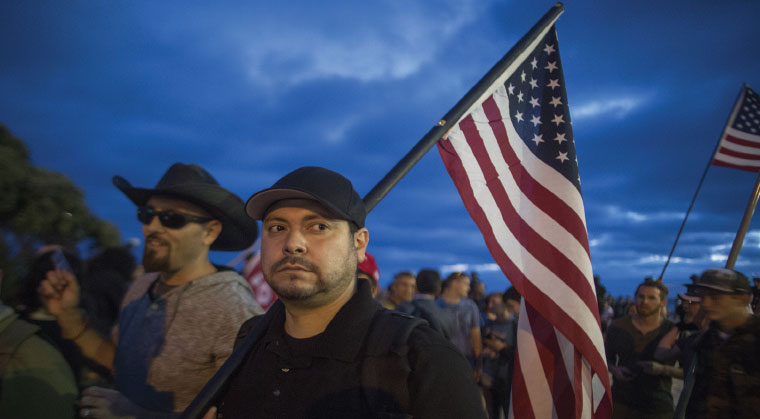Is the IDF Handcuffing Soldiers?


SIDEWAYS GLANCES The “Tayelet” is sealed shut after Sunday’s terror attack that opens the IDF rules of engagement to greater scrutiny
I n Jerusalem it’s known as the Tayelet.
The Tayelet or the Haas Promenade and its adjacent parkland affords tourists and picnickers a panoramic view of Har Habayit. Built at the northern edge of Armon Hanetziv where Mandatory Palestine’s High Commissioner Herbert Samuel lived in the 1930s tradition says this was the same vantage from which Avraham and Yitzchak beheld the place of the Akeidah “from a distance.”
On Sunday there were korbanos at this normally pastoral and historic site when an Arab terrorist deliberately rammed his truck through a parking lot where some 40 IDF cadets had gathered for an educational tour killing four soldiers and injuring 15.
Initial reports indicated that it was the tour guide Eytan Rond and not the armed soldiers who took the initiative and felled the terrorist with his 9mm handgun.
A review of the video from on-site surveillance cameras paints a disturbing picture.
After the initial hit a few soldiers from the group that was hit rushed the truck but turned back when it reversed to attempt a second murderous pass. An additional group of some 20 soldiers who had formed a circle some 25 feet away fled spontaneously.
Only after the truck seemed to get stuck did any armed soldiers approach. At press time a Jerusalem District court had slapped a gag order on the investigation including on who fired the shots that killed the terrorist. An IDF spokesman issued a statement that a preliminary investigation by the commander of the officers’ college Col. Yaniv Alaluf showed that at least two cadets did fire at the terrorist from close range.
While alert and armed citizens have been credited with felling terrorists in the past the public still counts on the IDF and police to be the first to respond with deadly force. When they don’t the public has the right to know why.
Sunday’s attack occurred just four days after an IDF military court convicted Sergeant Elor Azaria in the shooting death of an Arab terrorist who minutes prior had stabbed a soldier in Hebron. The best lawyers in the world would have found Azaria’s defense a challenge considering he was caught on film firing a bullet into the head of a prone terrorist. But many critics contend his lengthy highly publicized and highly politicized trial has had a chilling effect deterring soldiers from eliminating terror threats for fear that they will be the next Elor Azaria facing up to 20 years for manslaughter.
“In the last few years people on the left including heads of the IDF said the law must be followed but when there are nonstop terror attacks the public cannot be patient ” says Eli Hazan director of communication and international relations for the Likud party. “Azaria killed a terrorist and I along with the majority of Israelis support him for that despite the fact that what he did wasn’t following the rules.”
It’s not just the Likud a center-right party that is raising alarm bells.

Sgt. Elor Azaria is getting pressured to drop his appeal in return for a lighter sentence
Amos Harel military and defense analyst for Ha’aretz described the footage of soldiers fleeing the scene in a panic in Sunday’s terror attack as “awkward.” It’s a scene wrote Harel that “increases the Palestinian enthusiasm online while causing the army embarrassment.”
Harel duly noted the cadets on the tour were from rear units and hadn’t yet gone through combat training. However there have been relatively recent cases where even trained combat soldiers fled similar scenes such as the October 2015 terror attack at Be’er Sheva’s central bus station.
That incident occurred five months before the Azaria incident. But eight months after Azaria’s arrest the IDF dismissed a combat officer for not intervening in a terror attack that killed two people on Ammunition Hill in Jerusalem.
Harel criticized the linkage between Sunday’s terror attack and the Azaria conviction. “It’s hard to believe that in the seconds after the truck hit anyone who was running away stopped to think about Azaria or about the legal consequences of shooting the attacker” he wrote.
It’s really not hard to believe.
In 2010 the IDF began forbidding its soldiers from firing — even in the air — at stone throwers in the West Bank. Soldiers riding in armored jeeps were told they could no longer shoot at Palestinians throwing Molotov cocktails. In August 2015 the IDF ordered soldiers to hold their fire entirely except for instances in which there is a genuine threat to their lives.
The goal was to avoid widespread protests fanning nationalistic flames among the Arabs and perhaps to avoid a summons to the docks of the International Criminal Court.
So it doesn’t exactly require a suspension of belief to see that soldiers not their terrorist attackers are in handcuffs.
As Eli Hazan of the Likud put it: “It is unacceptable that a terrorist comes out alive after committing a terrorist attack. I know the law doesn’t allow this and everyone should respect the law but the law should ensure that we should be able to stay alive.”
Ariel Ben-Solomon contributed reporting
Oops! We could not locate your form.







